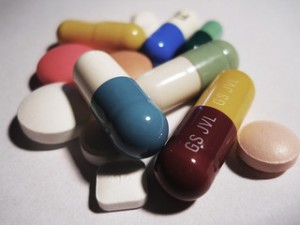Recently, the Chinese police cracked down on a counterfeit prescription drug ring in China in an operation that involved 18,000 Chinese police. They managed to seize nearly $180 million dollars in counterfeit drugs and destroyed 1,100 facilities where the counterfeit drugs were produced. These counterfeiters sold drugs over the internet through portals with names like “online Canadian pharmacy” with the intention of deceiving the public in order to net a profit. Counterfeit medication is a serious problem in the world, and one of the reasons for its prevalence has been a trend in the last few years for people to seek out cheaper prescription medications through sources other than their local licensed pharmacist.
The drugs that were seized in the raid were being sold to “treat” conditions ranging from hypertension to diabetes. The biggest problem with these fake drugs is that the consumer does not know what it is they are in fact getting. Since the drugs are coming from an unknown and possibly illicit source, the consumer has no way of verifying the safety of the conditions where the drugs were produced, the efficacy of the drug, or if the drug is even what they thought they were purchasing.
The biggest protection that consumers have in this country are the rules and regulations that states and the Federal Government set up to regulate and monitor the traffic of prescription medications. These agencies also provide the licensing and legal framework to ensure that qualified staff and personnel are employed in a pharmacy. The state also has regulations in place that ensure the safety and cleanliness of facilities both in the production of prescription medication and the distribution. These regulations are in place to protect the consumer and ensure an adequate supply of drugs to meet public health needs. While it is true that regulations contribute to the increase in the costs of prescription medications, those costs far outweigh the benefits of effective oversight.
For example, a company in Massachusetts has recently come under investigation by the Food and Drug Administration because it has been found that a recent meningitis outbreak has been linked to the drugs the company manufactures. So far, 334 cases of meningitis linked to this company have been confirmed and 29 deaths have been reported. It is hard to imagine a more serious consequence of poor oversight than death. Further investigations have revealed that the clean rooms that were used to manufacture the drug were in fact moldy, the equipment was contaminated, and there was bacteria on the machines that were used to manufacture the drug due to standing water on the floor from a leaky boiler.
Luckily for the U.S. consumer, there are oversight functions in place to catch these problems before they get out of hand. In the case of online drugs from counterfeiters with locations overseas, they set up their operations in these places first and foremost because there is no oversight. Pharmacies and pharmacists are even required to be registered with the DEA to prevent the diversion and abuse of controlled substances. All of the drugs that pharmacies must give out with a prescription are legally controlled substances, and Congress has established a closed system for the legitimate handling of prescription drugs at all stages. This system is put in place to maintain strict accountability. With online pharmacies, even with the allure of cheaper drug prices, there are no oversights to protect the consumer, and death could be lying in wait.
Check out:
- How to Hide Cash and Valuables at Home
- 3 Tips from Nurses to Make Your Medical Visit Easier
- Creative Ways to Earn Extra Money over the Weekend

